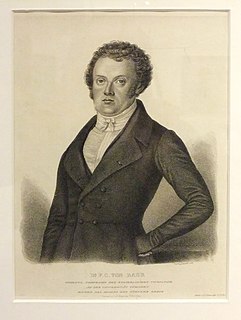A Quote by John Warwick Montgomery
In 56 A.D. [the apostle] Paul wrote that over 500 people had seen the risen Jesus and that most of them were still alive (1 Corinthians 15:6ff.). It passes the bounds of credibility that the early Christians could have manufactured such a tale and then preached it among those who might easily have refuted it simply by producing the body of Jesus.
Related Quotes
If this understanding of the good news of Jesus prevailed among Christians, the belief that Jesus’s message is about how to get somewhere else, you could possibly end up with a world in which millions of people were starving, thirsty, and poor; the earth was being exploited and polluted; disease and despair were everywhere; and Christians weren’t known for doing much about it. If it got bad enough, you might even have people rejecting Jesus because of how his followers lived. That would be tragic.
Where possible Paul avoids quoting the teaching of Jesus, in fact even mentioning it. If we had to rely on Paul, we should not know that Jesus taught in parables, had delivered the sermon on the mount, and had taught His disciples the 'Our Father.' Even where they are specially relevant, Paul passes over the words of the Lord.
I'm going to make a statement that you might not believe; you might even find it offensive. Fortunately, its not just my opinion; I got it from the apostle Paul who picked it up from Jesus - so don't get upset with me! Here it is: You haven't fully preached the Gospel of Christ if you haven't done it with miracles, signs, and wonders.
I love a statement by the apostle Paul, in the Book of Philippians in the Bible. I think the Corinthians had been writing to Paul, telling him that old men were chasing young women, nobody was tithing - and all that must have run Paul crazy. He wrote back and said, "If there be anything of good report, speak of these things." That's one of my principles.It's another discipline that I encourage myself to employ - to, as much as possible, say the courteous thing, and then be it.
Jack didn’t fully get Jesus. Audrey tried to explain it, and he could repeat it back to her, word for word, but he still didn’t comprehend most of it. The best he could gather was that Jesus lived long ago, told people to be nice, and they killed him for it. At the end, he asked who was Jesus’ necromancer and if he was in the Bible, then Kaldar couldn’t stop laughing and had to sit down.
The Lordship of Jesus Christ is not quite forgotten among Christians, but it has been relegated to the hymnal where all responsibility toward it may be comfortably discharged in a glow of religious emotion. Or if it is taught as a theory in the classroom it is rarely applied to practical living. The idea that the Man Christ Jesus has absolute final authority over the whole church and over its members in every detail of their lives is simply not now accepted as true by the rank and file of evangelical Christians.
The early Christians' opponents all accepted that Jesus existed, taught, had disciples, worked miracles, and was put to death on a Roman cross. As in our day, debate and disagreement centred largely not on the story but on the significance of Jesus. Today nearly all historians, whether Christians or not, accept that Jesus existed and that the gospels contain plenty of valuable evidence which has to be weighed and assessed critically.
Jesus and Paul were serious dudes. They had teeth missing. Jesus was a carpenter, Paul was in prison. These guys didn’t eat tofu dogs and bean sprouts. They didn’t play tennis. If there were trucks back in their times, they would have been doing driveway lube jobs on a Saturday afternoon. Same thing with King David. Yeah, he might have played a lyre, but he slaughtered thousands of guys.
Beyond the earliest days of the religion, early Christians were believers because they'd been converted, not because they were witnesses to supernatural events, just like today. The 9/11 hijackers believed in Paradise for martyrs, but that doesn't mean that that's true. We have no good reason to imagine that eyewitnesses wrote the gospels rather than someone simply documenting the Jesus story as it had developed within their church community.
There is a time when every person who encounters Jesus, who believes Jesus is the Son of God, decides that they will spend their life following Him. Some people, like the Apostle Paul, make this decision the minute they meet Him, the minute they become a Christian. Others, like the Apostle Peter, endure years of half-hearted commitment and spiritual confusion before leaping in with all their passion. Still others may enjoy some benefits of God's love and grace without entering into the true joy of a marriage with their maker.
For the sake of the Gospel, it was worth it… All you have to do is look at any society where there is no Jesus. I’ll give you four: Nazis, no Jesus. Look at their record. Uh, Shintos? They started this thing in Pearl Harbor. Any Jesus among them? None. Communists? None. Islamists? Zero. That’s eighty years of ideologies that have popped up where no Jesus was allowed among those four groups. Just look at the records as far as murder goes among those four groups.
What kind of authority can there be for an 'Apostle' who, unlike the other Apostles, had never been prepared for the Apostolic office in Jesus' own school but had only later dared to claim the Apostolic office on the basis of his own authority? The only question comes to be how the apostle Paul appears in his Epistles to be so indifferent to the historical facts of the life of Jesus....He bears himself but little like a disciple who has received the doctrines and the principles which he preaches from the Master whose name he bears.




































